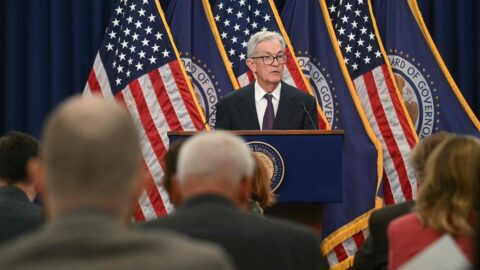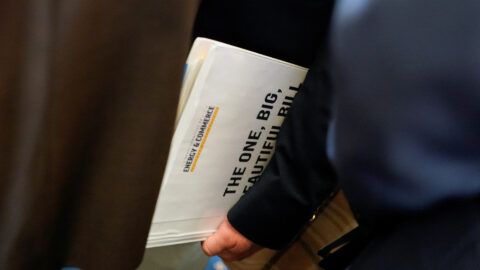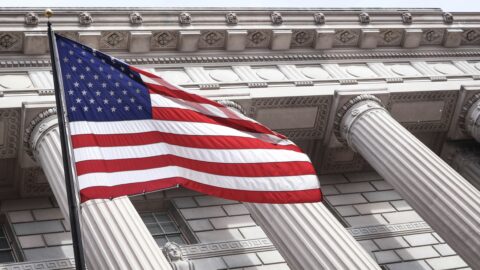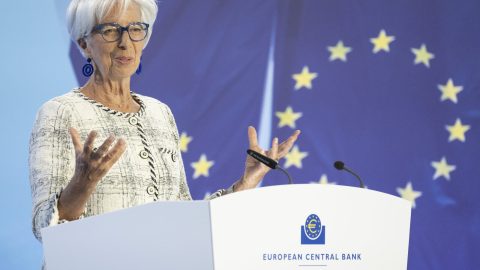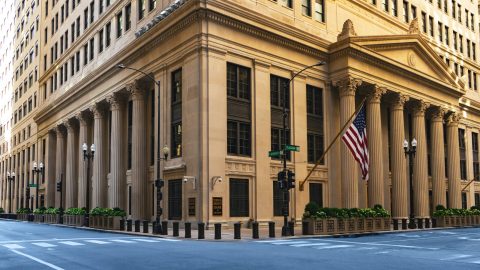Author's Contributions
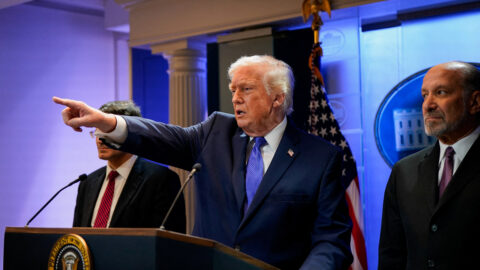
Trump’s tariff hammer
The US Supreme Court has put a stop to the majority of tariffs. The Trump government’s response: new tariffs – even if they already have an expiration date. Is uncertainty now increasing again?

Weekly Winzer: Is the situation between the USA and Iran escalating?
Tensions between the US and Iran have intensified again in the past week. Is there a threat of escalation and what impact will the conflict have on the financial markets?
Weekly Winzer: Sector rotation
The stock markets are rising, which is not surprising given the fundamentally positive environment. However, the sector rotation away from growth stocks and toward value stocks is becoming increasingly noticeable. Chief Economist Gerhard Winzer explains the reasons for this in his weekly market commentary.
USA demands control over Greenland: What are the possible consequences?
After US President Donald Trump continued to demand that the US gain control over Greenland, he has now announced further tariffs against certain EU countries. How might the Greenland issue develop, and what are the possible consequences?

A new “D” in the D world
With the “Donroe Doctrine”, a new term is shaping the first few weeks of the year. Despite the geopolitical events, the markets are proving robust, which is probably also due to positive economic data. Read more about this in the latest commentary by Chief Economist Gerhard Winzer.
Reality check for the market outlook
Just before Christmas, the markets were once again on fire: numerous interest rate meetings and fresh economic data caused a stir. While expectations for the coming year seem largely set, the new signals from the central banks provide material for a reality check – especially with a view to 2026. Which scenario will win the race and where are the risks lurking?
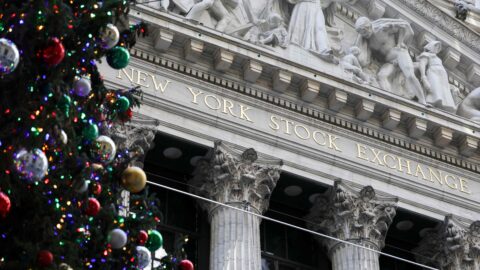
Fed rate cut – A Christmas present
As expected, the US Federal Reserve has lowered its key interest rate once again. This is a positive step for the markets. But how will the Fed continue with its interest rate policy in the new year?
Weekly Winzer: Autumn fog
The ongoing government shutdown in the US is also preventing the publication of important economic data. This makes it more difficult to assess the economic environment in the US. Chief Economist Gerhard Winzer explains possible scenarios in his weekly market commentary.

Weekly Winzer: Interest rate cuts, government shutdown, and the gold rally
While the price of gold exceeded the $4,000 mark for the first time, the government shutdown in the US also dominated the headlines recently. In today’s interview, Gerhard Winzer answers questions about the impact this is having on the stock markets and what else is happening on the markets.
Weekly Winzer: Growth rates above expectations
The impact of higher US tariffs on economic growth has so far been less significant as expected. Globally, growth continues to exceed expectations. However, potential downside risks remain.
Federal Reserve cuts US key interest rate
As expected, the US Federal Reserve lowered the key interest rate by 0.25 percentage points yesterday. Chief economist Gerhard Winzer analyzes the interest rate decision and statements by Federal Reserve Chairman Jerome Powell.
Weekly Winzer: Powell opens door to interest rate cut
US Federal Reserve Chairman Jerome Powell signalled a possible interest rate cut in September in Jackson Hole. The markets reacted immediately with price gains – but there is more to his words than pure monetary policy. The Fed is caught between inflation risks, a weaker labour market and growing political pressure.
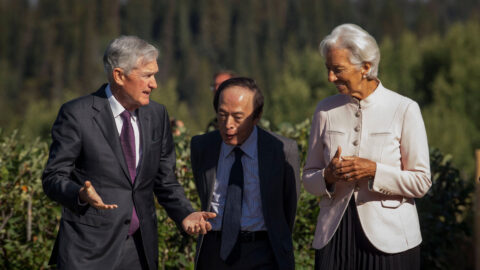
Weekly Winzer: Fed Signals Rate Cut – What Jerome Powell’s Words Mean for Markets
The U.S. Federal Reserve is signaling a possible rate cut in September. What’s behind Powell’s message—and what does it mean for markets and investors?
Between AI euphoria and recession worries: which scenario will prevail?
The markets are rising thanks to AI hopes, strong corporate profits and non-restrictive monetary policy. But geopolitical risks, weakening labor markets and inflationary pressures are casting shadows. Which scenario will prevail – recession, AI exceptionalism or a period of slowdown?
Weekly Winzer: Optimistic profit expectations despite risks
Despite the risks posed by the threat of US tariffs, the stock markets have performed positively since April. There are several reasons for this. Nevertheless, the current environment favors a more neutral stance in the portfolio.
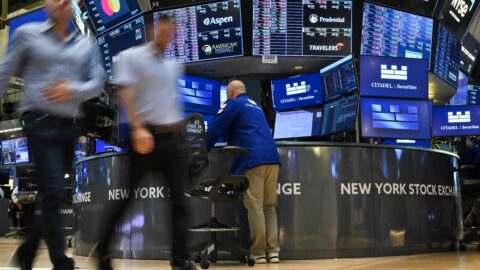
Middle East conflict: Is the markets’ restrained reaction appropriate?
So far, the markets have reacted little to the hostilities between Israel and Iran. Is the market development appropriate or is the risk of further escalation being underestimated? Chief economist Gerhard Winzer explores this question in today’s blog post.
The Triple B Plan
Donald Trump’s “Big Beautiful Tax Bill” package is intended to bring comprehensive tax cuts in the US. The already high budget deficit would increase further. This would also have an impact on US government bond yields, which have been rising for months anyway. There is a threat of a downward spiral with unforeseeable consequences.

Trade conflict between the USA and China eases
The US and China have agreed to suspend high tariffs for 90 days. While the markets are reacting with relief, some uncertainties remain.
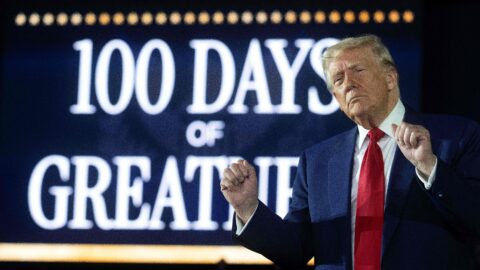
The first 100 days
The first 100 days of Donald Trump’s second presidency are behind us. What has happened since then? Will the structural changes continue at this pace?
Winzer of the week: It’s getting more extreme
The new tariffs imposed by the US government and the reactions from Mexico, Canada and China make a trade war more likely. At the same time, the US economy is showing the first signs of weakening. All of this could mean a headwind for the financial markets.

After the election, Germany is facing a change of direction
After the election in Germany, a two-party coalition could quickly be formed under the leadership of the CDU politician Merz. After five years of economic stagnation, the potential for a change of course is there. The trend-setting German stock index (DAX) is rising.

Trade conflict & Ukraine war: How structural change could affect the markets
In the global world order, much seems to be in a state of upheaval. The changes brought about by the new US administration are a structural change that is also affecting the financial markets. In our view, this scenario is currently the most likely 👉
Rising inflation expectations and yields: a risk for market sentiment?
Two developments on the stock markets have stood out since the beginning of the year: rising inflation expectations and significant increases in government bond yields. Could market sentiment soon turn frosty in view of this?
Strong US labor market report: just an outlier?
In September, the US labor market performed surprisingly well, with significantly more new jobs created than expected. This has pushed back concerns about an impending recession, which is positive for the financial markets. Was the strong labor market report just an outlier, or is the US Federal Reserve perhaps on the right track to achieving the hoped-for “soft landing”?
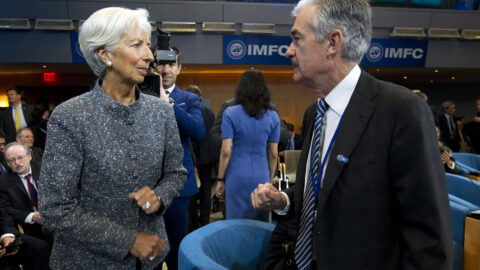
Interest rate cuts at the door
After the rapid and sharp interest rate increases in 2022 and 2023, the pendulum is now swinging in the opposite direction. After the European Central Bank (ECB), the US Federal Reserve will cut key interest rates for the first time this Wednesday, thus initiating a new cycle of interest rate cuts. What does all this mean for the economy and what conclusions can be drawn from it for investments?
Shift in risks
Both the markets and central banks are pointing to a shift in economic risks from inflation towards growth. The focus is currently on the US labor market.

The new age of protectionism
The path towards a clearly fragmented global economy is continuing. Recently, the increase in tariffs on Chinese electric cars in the USA and the European Union has been particularly noticeable. What impact is the rise of protectionism having on the global economy?
Soft landing beats political uncertainty
With the surprising fall in inflation in the US, the scenario of a “soft landing” has become more likely. Meanwhile, the shocking attempted assassination of US presidential candidate Donald Trump at the weekend will likely have an impact on the current election campaign.
Signs of a slowdown: more scope for central banks?
Economic and political uncertainty is increasing. Nevertheless, inflation is falling in the USA and the eurozone. This increases the scope for central banks to react to a slowdown in economic growth by lowering key interest rates.
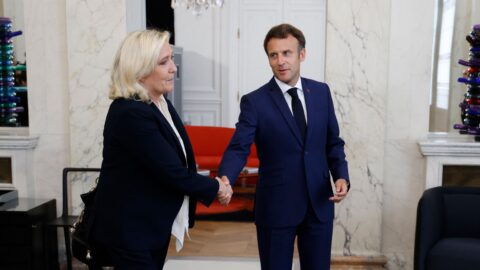
Nationalist forces strengthened in the EU: what could be the consequences?
In the EU parliamentary elections, right-wing parties made significant gains in some major countries. In France, early elections are now on the cards following President Macron’s defeat. What possible effects could a shift to the right have in the EU?
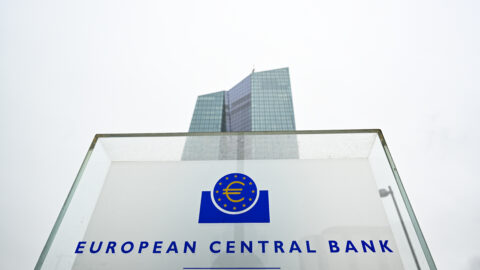
ECB interest rate policy: First rate cut, and then?
The European Central Bank is likely to cut its key interest rate tomorrow for the first time since the interest rate turnaround in 2022. But what comes next? Will the first cut herald a series of interest rate cuts or will the monetary guardians remain cautious? Chief economist Gerhard Winzer takes a look at the ECB’s possible future interest rate policy.

Attack on Israel
The smouldering conflagration in the Middle East reached a new level of escalation last weekend. Iran attacked Israel directly with drones and missiles for the first time in history. There is a risk of further escalation between Iran and Israel. How is the market reacting to this?
Favorable indicators: Soft landing on approach?
More and more indicators are pointing to good global growth. Even regions and sectors that had recently weakened are likely to return to growth. The soft landing after the sharp rise in inflation and the turnaround in interest rates could succeed. The decline in inflation is pausing at the same time, as yesterday’s US inflation data shows.
Interest rate cuts and economic growth – a favourable environment for the markets
Even though the ECB recently left its key interest rate unchanged, central banks are increasingly signaling an inclination to cut interest rates for the first time. At the same time, the indicators point to good economic growth at a global level. These are positive signals for the stock markets.
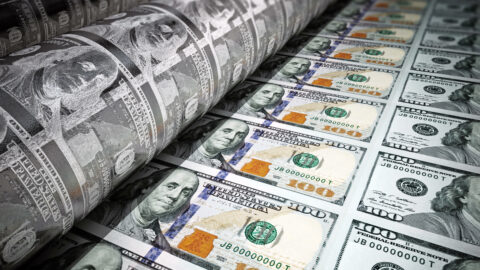
US interest rates: What are we to expect in the coming months?
As the latest data shows, the US economy continues to grow strongly – despite the significant interest rate hikes in the past two years. What impact will this have on the Federal Reserve’s future interest rate policy and when could the first rate cuts follow?
Inflation, interest rates, markets: 10 topics for 2024
After the price rally at the end of last year, the markets started 2024 with price losses. The ongoing positive correlation between bonds and equities is striking. Both asset classes have fallen equally recently, which makes diversification in a portfolio more difficult. But the year has only just begun. We therefore take a look at 10 key topics for 2024 that could be helpful when putting together a portfolio.
Increasing optimism for a “soft” economic landing
While equities have recently risen, yields on the bond market have weakened. The markets are being supported by increasing hopes of a “soft” landing for the economy. What are the chances of this scenario?
Encouraging fall in inflation
Since the beginning of November the prices of both risky security classes such as equities and credit-safe government bonds have been on the rise. The market appears to be increasingly pricing in a so-called “soft” landing for the economy. The probability of this actually increased over the course of the year. However, the economic data published in recent weeks and months does not contradict the “hard” landing scenario.
Soft-landing optimism might be in for some disappointment
The financial environment has become slightly more relaxed since the beginning of November. This fact is manifesting itself on the market in the form of falling yields and rising share prices. This week, two indicators relating to the US economy in particular could provide clues as to the sustainability of this trend since the beginning of the month: retail sales and consumer prices.
How restrictive are the current interest rate policy and financial environment really?
In line with the surprisingly strong economic indicators in the US, government bond yields have risen significantly in recent months. This is putting pressure on the prices of many classes of securities and intensifying discussions about how restrictive interest rate policy really is. Could the higher level of yields make the central bank’s job easier in the form of further interest rate hikes?

Attack on Israel: Reaction of the markets
The terrorist attack on Israel by Hamas last weekend dominates the international headlines. The markets are reacting to this with price declines, but the extent of the movements has so far been limited.
Dollar exchange rate, oil price, and interest rates burdening the markets
The stock markets have recently come under pressure due to several factors. Both the higher dollar exchange rate and the higher oil prices and yields on the bond market are weighing on prices. Chief economist Gerhard Winzer assesses the current situation in his blog article.
Conditional pause on interest rate hikes
The European Central Bank has raised the key interest rates probably for the last time in this interest rate cycle. But the rising oil price poses a risk that the ECB has only taken a pause.
Pause on interest rate hikes?
Once again it’s all about interest rates this week. Will the ECB take a break this time and leave key interest rates unchanged? There is a lot to be said for it.

Hopes for a soft landing
In the past, sharp hikes in key interest rates often triggered a recession. After the latest economic and labour market data, hopes are growing for a soft landing of the economy.
What are the lasting results of the central bank meeting in Jackson Hole?
At the annual meeting of central bankers in Jackson Hole Federal Reserve Chair, Jerome Powell, summed up the uncertain environment as “navigating by the stars in a cloudy sky”. This relates, among other things, to the uncertainty about the level of the neutral interest rate, the lagged effect of key-lending rate hikes on economic growth and inflation, and the drivers of inflation.
Soft landing with risks
Currently, the most important indicators point to average global economic growth and falling inflation. The probability of an immediate recession has decreased significantly. But the risks in the medium term remain. Chief economist Gerhard Winzer explains which three scenarios are currently emerging in the blog post.
Immaculate disinflation: Is that possible?
Can price stability, i.e. inflation of 2%, be achieved without a recession? The further decline in inflation in the US in June has raised expectations for this favourable scenario. However, a look in the rear-view mirror calls for caution. In the past, a central bank-induced decline in inflation has often been accompanied by a recession.
Interest rate policy based on the motto “higher and longer”
The global economy is proving to be increasingly robust against a number of headwinds. Due to the uncomfortably high level of inflation, the central banks are likely to stick to their tight interest rate policy for longer than expected.

Recession, inflation, key interest rates: Economic outlook for the second half of the year
The feared recession has so far failed to materialise and inflation is also falling. Nevertheless, the risks remain on the downside. What could be in store for the markets in the second half of the year?





